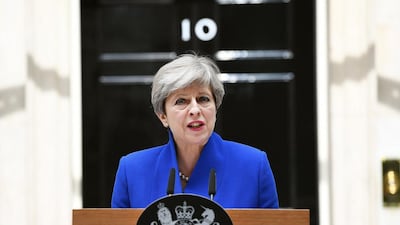For the fourth time in under three years, Britain has produced an election result that is more likely to rupture the United Kingdom than it is to repair it.
In 2014, the Scottish referendum, conclusive as it appeared to be in its rejection of independence, served to further embolden Scottish nationalists. The UK general election that followed in 2015 forced David Cameron, then prime minister, to seek last year’s Brexit ballot, which delivered a vote to leave the European Union by a margin of less than four per cent. The result was seen as so unsatisfactory by so many, that mawkish “remainers” have restlessly campaigned for a rerun ever since. Mr Cameron, who had staked his political reputation on Britain staying in the EU, resigned within hours of the votes being counted.
His successor, Theresa May, used the same form of calculus to take the country to the polls again last week in what amounted to a referendum on whether the British public favoured a “hard Brexit”. The results delivered a stinging rebuke to Mrs May, who now finds herself trying to lead the ruling Conservatives with a minority administration, a damaged reputation and a non-existent mandate to conduct complex Brexit negotiations. Her party is renowned for being ruthless if it spots weakness in its leadership – the late Margaret Thatcher would have testified to that – and some believe Mrs May will struggle to survive even as she strives to form a government by forging a “confidence and supply” agreement with the minority Democratic Unionist party. Critics have described this as a potential coalition of chaos. Far from 2017 healing the deep scars of Brexit, those sores are wide open.
And what of her main political opponent, Jeremy Corbyn? The Labour leader was written off long ago, yet he has returned the best set of results for his party in years: 261 seats in Parliament, more than any other Labour leader since Tony Blair, and more than 40 per cent of the popular vote. But there are problems in those numbers too: in the past 40 years, only Mr Blair has managed to win an election for Labour, and the high water mark of their support under any other leader is the 271 seats Labour gained in the 1992 election under Neil Kinnock. Clearly, neither main party quite works for the British people, yet the minor parties also fared poorly. It was, in other words, a bad night for all. There is plenty of pause for thought there, not only for Mrs May.

